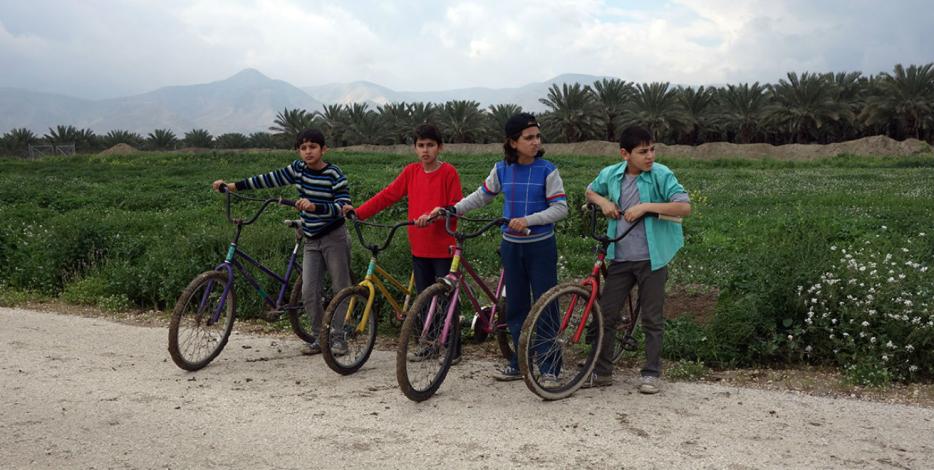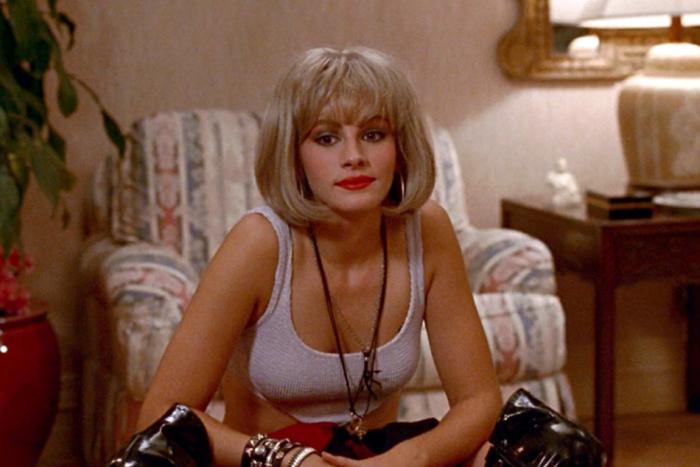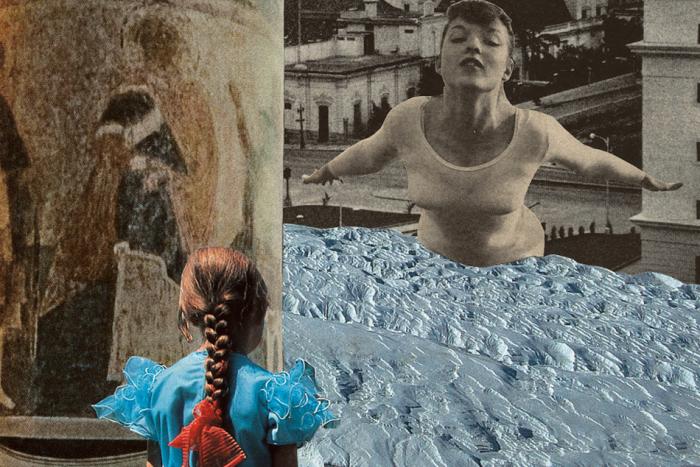Uplifting. Life-affirming. Joyous. In the past, these adjectives haven’t been applied to the films of Hany Abu-Assad. The Palestinian director is best known for his heavy, Oscar-nominated works Paradise Now (2005) and Omar (2013), which deal with, respectively, two would-be suicide bombers and a young man forced to collaborate with the Israelis. Similarly, his first narrative feature, Rana’s Wedding (2002), captured the daily traumas of Arabs living under occupation. With his most recent film, The Idol, however, Abu-Assad has adopted a new tone, or what he calls “a modification.”
Once again, Abu-Assad turns his camera on the youth of Palestine, but here the tale isn’t one of tragedy. The Idol is a biopic of Mohammed Assaf, a young singer from the Gaza Strip who rose to fame after winning Arab Idol in 2013. (Assaf can now be likened to a Nick Jonas of the Arab world, with millions of young fans fawning over his voice and cheekbones alike.) The film traces Assaf’s life from his youth in a Gazan refugee camp to his daring (and illegal) crossing of the Egyptian border in order to make it to audition for the reality television show. To some, the idea of a biopic about a singing competition might seem trite, but as Abu-Assad explains, capturing Assaf’s story was about highlighting the talent of Palestinians—be it Assaf himself, the Palestinian youth cast in the film, or Palestinian cinema as a whole. The Idol then stands out not just for its larger-than-life subject, but also in how it normalizes the narrative of Arab stories by shifting away from the standard plots of terrorism and suffering that cater to Western audiences’ expectations.
Kiva Reardon: Among some academics and critics the idea of “national cinema” has gone out of vogue. As a Palestinian, does this concept mean something different to you?
Hany Abu-Assad: Absolutely. Personally, I don’t believe in the narrow-minded meaning of nationalism. What does narrow-minded mean? That as a nation you deserve more, are more developed, or more entitled to anything. I’m against this. Unfortunately, this idea of nationalism is being used by a lot of countries; to identify yourself as different and better. To me, nationalism is an interest, shared by a group of people, who have a common [goal] to protect. Or a common case they have to fight for. In my situation, the case is that of Palestine. There is an injustice being done to us from 1948 to now. To identify as a Palestinian is to try and rectify what went wrong—at least in the eye of the artist. I can’t change what went on, but in my art I can make it right.
Because of distribution models, Palestinians in Palestine often don’t get to see them, but your films play widely at European and Western film festivals. Do you think about whom your films are for?
With this movie we’re trying to break this [reality]. We have a plan to distribute the film widely and to our people. Again, not as a better nation, but as a nation seeking freedom. I want our people to feel proud when seeing this movie. The best measure of a nation is what their people are producing. Not what cars, or technology they make, but what their humanity is producing. I want our people to be proud of producing Mohammed Assaf—as a singer, a voice, an artist who can turn ugliness to beauty.
In the past, you’ve said the dominant theme of Palestinian cinema is trauma. This film, however, has a different tone. Can you talk about this shift?
It’s not a shift, but a kind of modification. There is still tension and sadness [in the film]. In the last moments [after Assaf wins Arab Idol], there is still sadness because we are still under occupation. This is why our celebration [after his win] was a kind of demonstration. But here the movie does end with more hope. Yes, this is a modification. I think hope is oxygen for human progress. You can’t move forward [or] cure yourself without hope; you can’t become better without hope. This is why it is important in movies to keep hope alive. If we lose hope we will lose our existence as a nation.
It’s hard to talk about what hope means for the Oslo generation, Assaf’s generation. These were the kids who grew up under the failed promises of the peace process. Can you talk about portraying this generation in your film?
You are right, but this was probably unconscious [in shaping] the tone of the movie. I’m inspired by what’s happening around me. There are two movements in Palestine: some youth become suicidal; some youth understand their situation and see how to reach what they want, no matter the obstacle. I’m now more influenced by those who are creating hope. Like Electronic Intifada, this is great example of creating hope.
Some reviewers seemed surprised by this film, which points to an expectation in the West that Arab stories need to be sad or traumatic. Did you feel the need to challenge that?
Not consciously, but it was an aftermath. I thought [after reading reviews]: “Why would they see this movie as ‘unexpected’?” Because they see us, Arabs, as victims or as terrorists. This is why the film is unconsciously challenging these ideas. What I wanted to do with this movie was to show Palestinians being united under one voice and art. Assaf is a singer—he’s nothing more than a singer, and still he united the whole nation. But if the by-product of the movie is challenging what the West expects…Yes, this is nice.
How can cinema act as resistance?
Cinema as a tool of resistance is something I am totally behind. I will tell you why: you don’t judge a nation by their weapons, but by their poets. You judge nations by what they contribute as a culture. Israelis and Zionists in general want us to stop believing we are a nation. By making Palestinian cinema, it’s already destroying this [idea]. They have tanks and airplanes. But how can they stop a beautiful movie? Tell me? How can they fight this? How? Just by killing me, by the way. [Laughs] But even then, how are they going to kill The Idol? They kill me and the movies live. We produce someone like Edward Said or Mohammad Bakri, now we have Mohammed Assef. Israelis freak out about this. Even with all the destruction they are doing to our society, still we are producing such humanity. But I don’t just want to exist as a culture under the occupation. This is what I mean by a resistance: by making cinema, the film, culture, will continue to exist after the occupation ends. Are you Palestinian?
No, Canadian.
Before that?
Irish. Partition…
Ahh, well, we have a solidarity.
You worked in documentary before turning to fiction. Did this influence how you approached taking Assaf’s story to the screen?
There were concessions. I admit it. But as a director, you’re kind of a cook. Every time you try and invent a new fusion of food. You have the freedom to choose from the sweet to the bitter. You can choose any spice you want. When you have real life, you have rice and salt; but you still have to make it tasty. I took the framework of Assaf’s life but added some spices.
You shot on location in Palestine. Why?
One of challenges we’re facing is to create an environment where we [Palestinians] can make movies—and more than one a year. The more we make movies, the more we will exist in the world, even though we are under occupation, under daily destruction as a society. Doing art is fighting this destruction. Coming back to shoot [in Palestine], it was joyful to see there is more interest than 20 years ago from young people to be a part of filmmaking. Most of my crew were Palestinians—cinematographer, editor, production designer. All the key players in the film were Palestinian. This is a hopeful situation.






